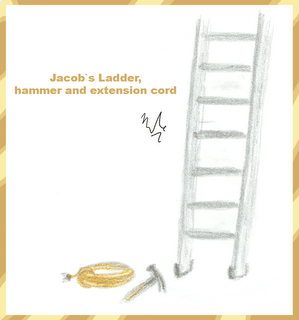January 31, 2009
Click the Scriptures to read them on-line:
Exodus 28-29 and Acts 7

The views, comments, statements and opinions expressed on this website do not necessarily represent the official position of The Salvation Army.















Sermon 50 by John Wesley launches into his discussion of the use of money from the base of Luke 16:9: I say unto you, make unto yourselves friends of the mammon of unrighteousness; that, when ye fail, they may receive you into the everlasting habitations.
The primary metaphor that Wesley uses to unite the discussion is that of one’s talent/money; he begins by referring to the parable of the shrewd/dishonest manager and then relates it to the Kingdom of God through the following three sections:
I. We ought to gain all we can gain but this it is certain we ought not to do; we ought not to gain money at the expense of life, nor at the expense of our health.
II. Do not throw the precious talent into the sea.
III. Having, first, gained all you can, and, secondly saved all you can, then "give all you can."
I found it very interesting the way Wesley intertwines the plot and theme of money with a recurring reference to love. It is this that pulls the sermon together in such a detailed, precise way, that one really needs to read – or hear - the sermon in one sitting (probably more than once given both the detail and the eighteenth century language) rather than by reading it a little bit at a time.
In this paper I will address the strengths and weaknesses of this sermon in each of the three above identified sections as well as the very important introductory section that sets the tone of the paper to follow. I will then evaluate the overall effectiveness of the sermon and respond to the question, “Does this sermon preach today?”
Introductory Section
Wesley begins this sermon by citing the Lord’s extended metaphor/parable commonly known as the ‘Prodigal Son’ and then launching into the parable about the shrewd/dishonest manager. This serves to provide a context for his unfolding argument since the scripture upon which this sermon is based concludes the latter parable.
Wesley intentionally explores the relevant context of the scriptures in this sermon. I would be remiss if I did not acknowledge however that the use of money does not seem to be the intended theme of the parable of the shrewd manager. The parable is specifically addressing the concept of ‘prolipses’ and “through this parable Jesus admonishes his hearers to cast caution aside, seize the moment of opportunity and make provision for their future before God. The Kingdom of God is at hand” (Culpepper 1995, 309). That being noted, it should in no way discredit Wesley’s argument that there are principles from this parable that apply to our use of money. In support of this, I draw on the example of the Apostle Paul who while speaking about righteousness in Romans 7:2-3, instructs us that a man and woman are united in marriage until the death of one of the parties. I also note that the verse from which Wesley’s sermon is launched, Luke 16:9, functions not only as a conclusion to the parable of the manager but also as a transition into Jesus’ teachings about money (Luke 16:10-15) and later the futility of putting one’s faith in riches (Luke 16:19-31). Therefore the introductory metaphor/parable is appreciated as it does set the stage nicely for what is to follow. It is “of the highest concern that all who fear God know how to employ this valuable talent” (Outler & Heitzenrater 1991, 350).
Principle I: We ought to gain all we can gain but this it is certain we ought not to do; we ought not to gain money at the expense of life, nor at the expense of our health.
Wesley’s first principle that we should ‘gain all we can’, will cause most devout Wesleyans to stop in their tracks at first read. One’s mind naturally races to the ideas of the so-called prosperity gospel and of trying to serve two masters. It is important to read on. Wesley espouses a number of useful caveats: our pursuit should not lesson our physical or mental health or those of our neighbours. Wesley argues that even the non-believer should be able to understand this. He bolsters his argument by mentioning from Scripture that “whatever thy hand findeth to do, do it with they might.” Thus, with respect to money, he argues that one must ‘gain all you can’. This section cannot stand alone, but it does build the first story upon the introductory foundation and make it possible for him to develop his second principle.
Principle II: Do not throw the precious talent into the sea (Save all you can).
Now that one has gained all one can, Wesley argues that one should save all that one can. As with the first principle, upon reading the second, ‘red flags’ are raised. One immediately thinks of Jesus’ parable of the rich fool (Luke 12) whose only sin was displayed by the fact that he did just what Wesley seems to be suggesting here. The rich fool gained all he could and then he saved all he could and then God called him a fool and took his very life from him. It is good that Wesley elaborates. We should not simply throw away that which God has given us “to gratify the desire of the flesh, desire of the eye, or the pride of life” (Outler & Heitzenrater 1991, 353). Wesley goes on to advocate a life of simplicity so radical that I personally have never seen a living example of it: not only are we not to indulge ourselves at all but Wesley argues that out of love we should not provide superfluities for our children for to do this would be to “increase their temptations and snares, and to pierce them through with more sorrows” (Outler & Heitzenrater 1991, 354). His argument at this point is not yet complete. The third principle still needs to be added to the first two.
Principle III: Having, First, gained all you can, and, Secondly saved all you can, Then "give all you can."
It is only when this principle is added to the preceding principles that the argument gains its full strength. Wesley acknowledges that if one stops prior to this step one has actually done nothing. He argues that we are merely stewards of the Lord’s goods; therefore we should take from Him only as much as is absolutely required to provide for the needs of our household and ourselves. Next, we should provide for the ‘household of faith’ and with all the remainder (and there is much remaining in most households in our contemporary society), we have the opportunity to give to all people and in so doing we will actually be giving to the Lord himself. Wesley encourages us to cut off every expense whose only purpose is to indulge our ‘foolish desires’ and we should give God not only a tenth but everything we have in the manner of the three principles that Wesley has laid out. It is only as we do this that we will be “laying up in store for yourselves a good foundation against the time to come, that ye may attain eternal life! (SIC)” (Outler & Heitzenrater 1991, 357).
Conclusion
This sermon is highly effective. I most certainly felt the conviction of the Spirit upon reading it. In my life, I have been trying to eliminate all that might be considered excess frivolity. It has been difficult for even me who naturally errs towards simplicity. Is this sermon preachable today? I don’t know if Canadian society is ready for it yet. I believe that its message is needed. I think however that we have strayed so far down the staircase of self-indulgence that we may need one or two smaller steps before this one in order to be effectively encouraged to continue climbing the stairway to heaven (holiness).








